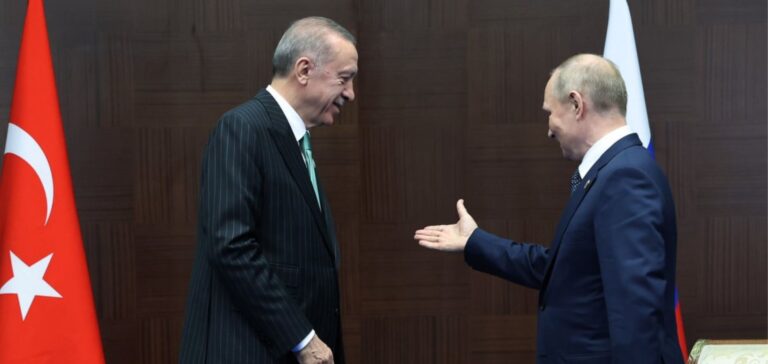Turkey has postponed payment to Russia of a $600 million natural gas bill until 2024, two sources said Wednesday. This is the first such postponement under an agreement announced last week, which underscores increasingly close ties between Ankara and Moscow. Under the terms of the deal, up to $4 billion in Turkish energy payments to Russia could be deferred until next year, the two sources told Reuters on condition of anonymity. Details of the agreement were not previously disclosed.
Turkey increasingly dependent
Turkey, which is preparing for elections on Sunday, is heavily dependent on energy imports and Russia is its largest supplier. The gas payment deal relieves some of the pressure on Turkey’s foreign reserves, which have been depleted by unorthodox economic policies aimed at propping up the lira, as well as by rising energy prices after Russia’s invasion of Ukraine last year.
The Turkish and Russian energy ministries, as well as their respective energy companies Gazprom and Botas, did not respond to requests for comment on the matter. Turkish Energy Minister Fatih Donmez said last week that Turkey and Moscow had reached an agreement allowing Ankara to defer energy payments up to a certain amount, but did not give details.
Turkey’s energy import bill hit a record high of nearly $100 billion in 2022 and in the year to February it imported 39 percent of its 53.5 billion cubic meters (bcm) of natural gas from Russia.
Privileged relationship
The agreement underscores the ties between Russia and Turkey, with the proximity between Presidents Vladimir Putin and Tayyip Erdogan allowing them to hold frequent discussions on issues ranging from energy to the wars in Ukraine and Syria. Turkey has sought to strike a balance in the war between Russia and Ukraine, opposing Western sanctions against Moscow while supplying arms to Kiev. Ankara also helped facilitate an agreement to resume Ukrainian grain exports.
Turkey and Russia have also cooperated on other regional conflicts, mainly through the relationship between their leaders, helping them find solutions in Libya, Syria and between Armenia and Azerbaijan, despite the fact that they mainly support opposing sides.
Most recently, Russia’s state-owned nuclear energy company Rosatom built the $20 billion, 4,800 megawatt (MW) Akkuyu nuclear power plant. Erdogan had previously suggested increased cooperation with Russia in the defense and energy sectors. The growing relationship also raised concerns in the West that Turkey was moving away from its ties to NATO. Ankara claims to remain loyal to NATO but needs to balance its relations. Polls show that Erdogan could lose the election largely because of a cost-of-living crisis and the sharp depreciation of the Turkish lira, largely caused by his government’s interest rate reduction program despite high inflation.The





















